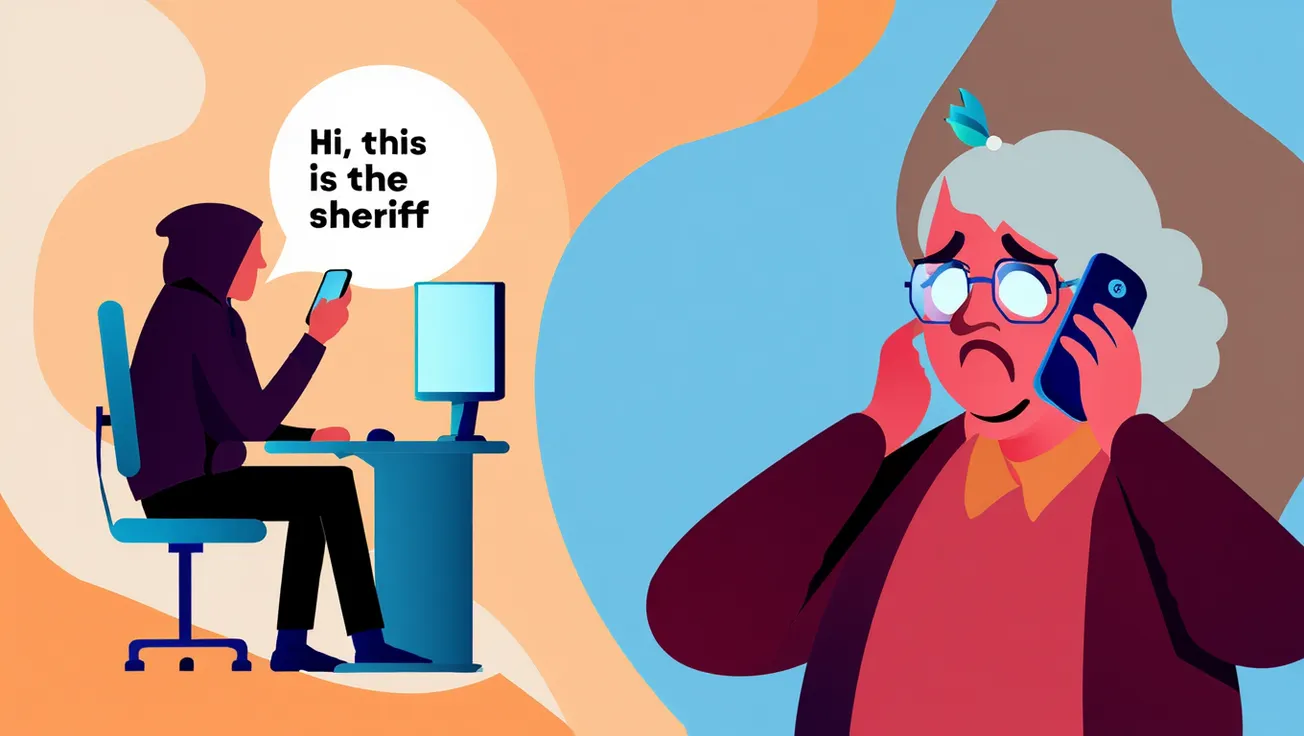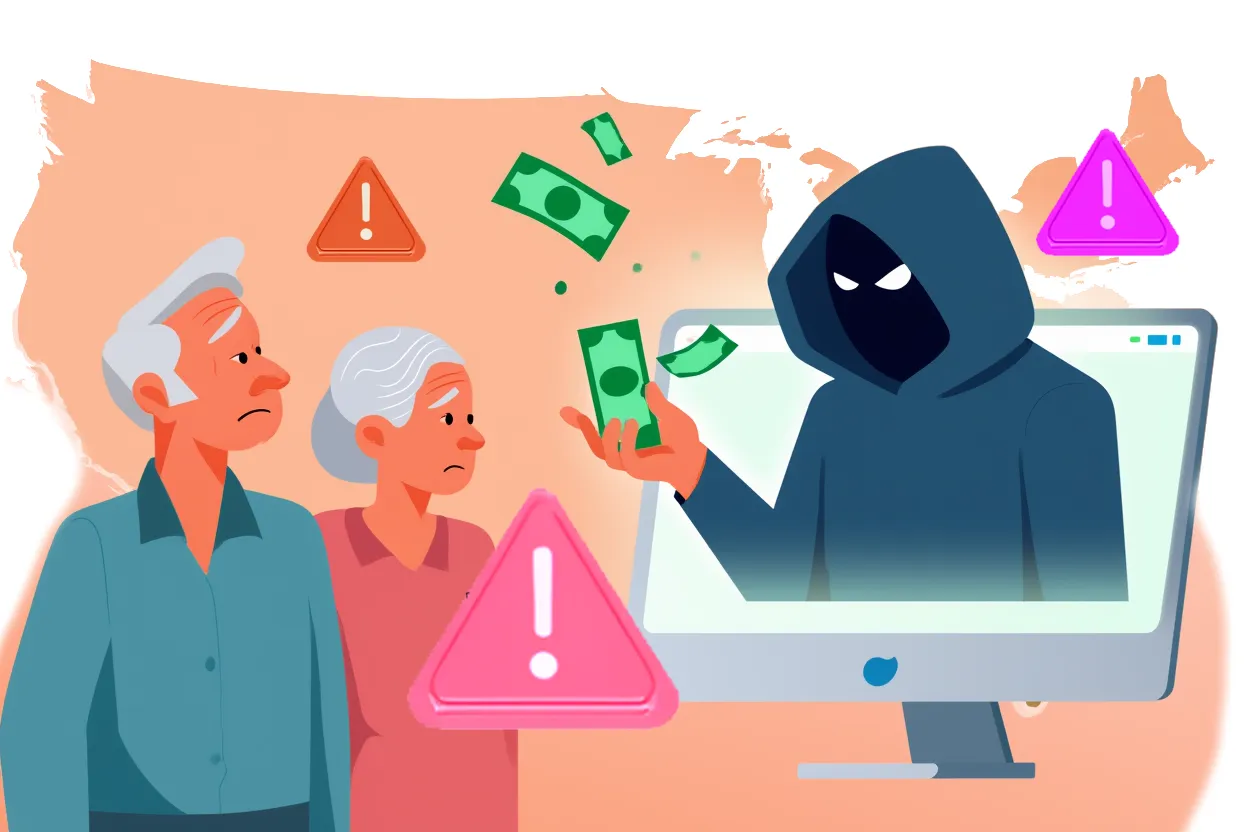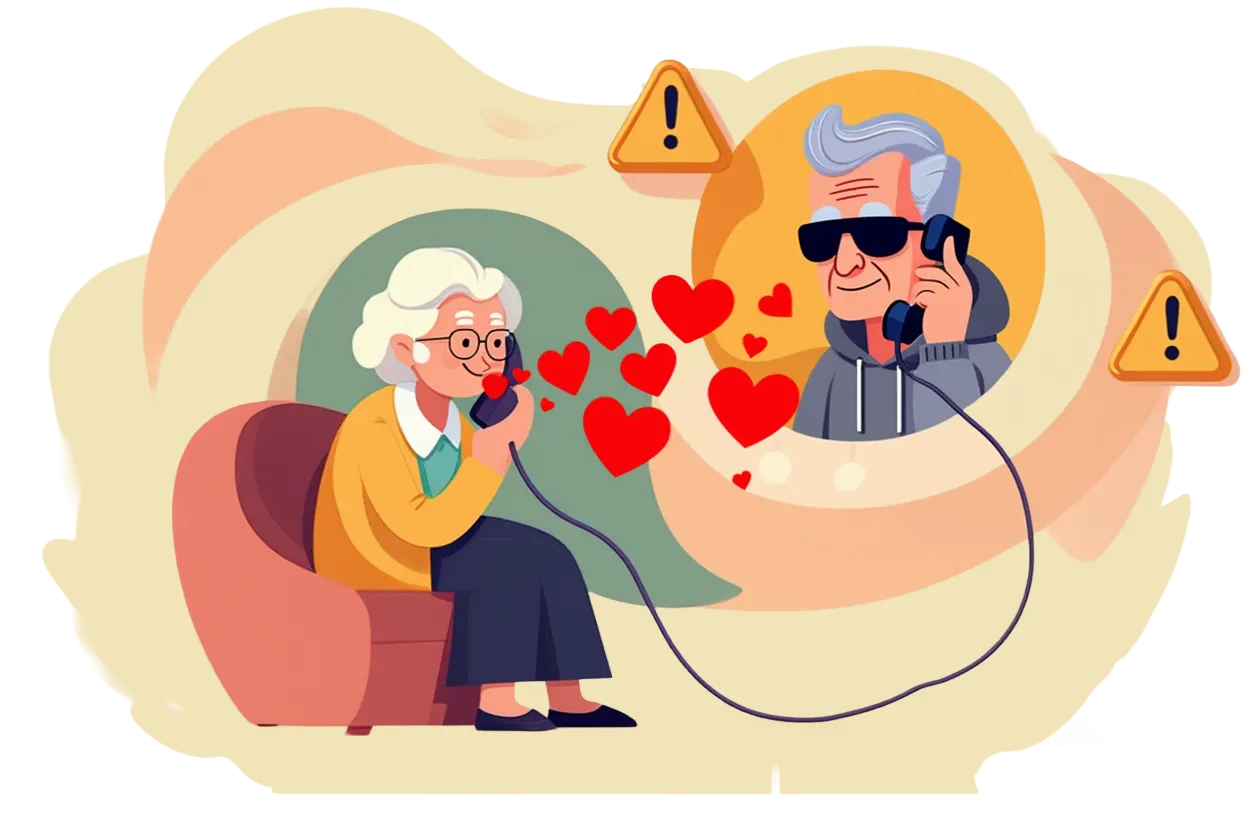The Takeaway
- Arrest-warrant and jury-duty scams jump during annual property-tax billing cycles.
- Scammers know seniors are writing checks this time of year — and exploit it.
- Multiple sheriff’s offices nationwide report major increases in these calls.
- No law-enforcement agency will ever demand tax payment, fines, or fees by phone.
- Mobile-friendly stacked checklist below.
Every fall and winter, seniors brace for a familiar envelope: the annual real estate tax bill.
It’s predictable, it’s stressful — and scammers know it.
Across the country, sheriff’s departments are reporting a fresh wave of arrest-warrant scams timed to coincide with property-tax deadlines. The pattern has become so common that agencies in California, Texas, Arizona, North Carolina, Illinois, Florida, and Kentucky have all issued nearly identical warnings in the past year.
The timing is not a coincidence
This is the moment when many seniors are:
- expecting official-looking mail,
- fielding calls from county offices,
- trying to understand new tax assessments,
- and feeling the pressure of rising bills.
Scammers take advantage of that mental load.
They call pretending to be deputies, court officers, or tax collectors — often using spoofed caller IDs that look frighteningly real. Then comes the scare tactic:
“You owe back taxes.”
“There’s a warrant.”
“You missed a tax filing deadline.”
“Pay now or you’ll be arrested.”
Law-enforcement agencies say these calls spike every single year when local governments send out property-tax bills.

Recent examples include:
- Los Angeles County, CA — fake "tax delinquency" arrest threats.
- Harris County, TX — scammers demanding “fines” tied to property-tax late fees.
- Maricopa County, AZ — spoofed sheriff’s numbers used to collect “unpaid county taxes.”
- Cook County, IL — residents told they missed a tax-related court summons.
- Mecklenburg County, NC — fake “property lien enforcement” calls targeting seniors.
- Jefferson County, KY (Louisville) — missed jury duty/court scams, and arrest warrant scams.
- Miami-Dade, FL — statewide surge in tax-season impostor scams, especially against older adults.
The common thread?
None of these agencies will ever call you to demand payment. Not for taxes, liens, or warrants.
Regardless of who collects them (county treasurer, revenue office, or sheriff's office), no legitimate office will ever demand phone payment or ask you to use gift cards, Zelle, Venmo, wire transfers, or cash apps.
But when bills are due and seniors are anxious, scammers know the timing is ripe.
Below is the quick, mobile-friendly checklist to help you — or a loved one — stay grounded if one of these calls comes through.
How to Spot a Property-Tax-Season Scam
Here are the key warning signs to watch for during real estate tax season:
Real tax offices do not call out of the blue and demand same-day payment. Anything urgent or threatening on the phone is a red flag.
Law enforcement does not collect property taxes, issue tax bills, or take payments by phone, app, or text.
No legitimate government office accepts those methods for taxes or fees. Gift cards and money apps are a classic scam payment route.
Scammers can spoof official numbers. A familiar caller ID does not prove the call is real.
Real agencies send letters and give you time to respond. They don’t threaten to send someone to your door if you don’t pay while you’re on the phone.
Hang up. Look up your county treasurer’s office on its official website and call that number. Check your tax status there, then report the scam to your local sheriff’s office and the FTC.










